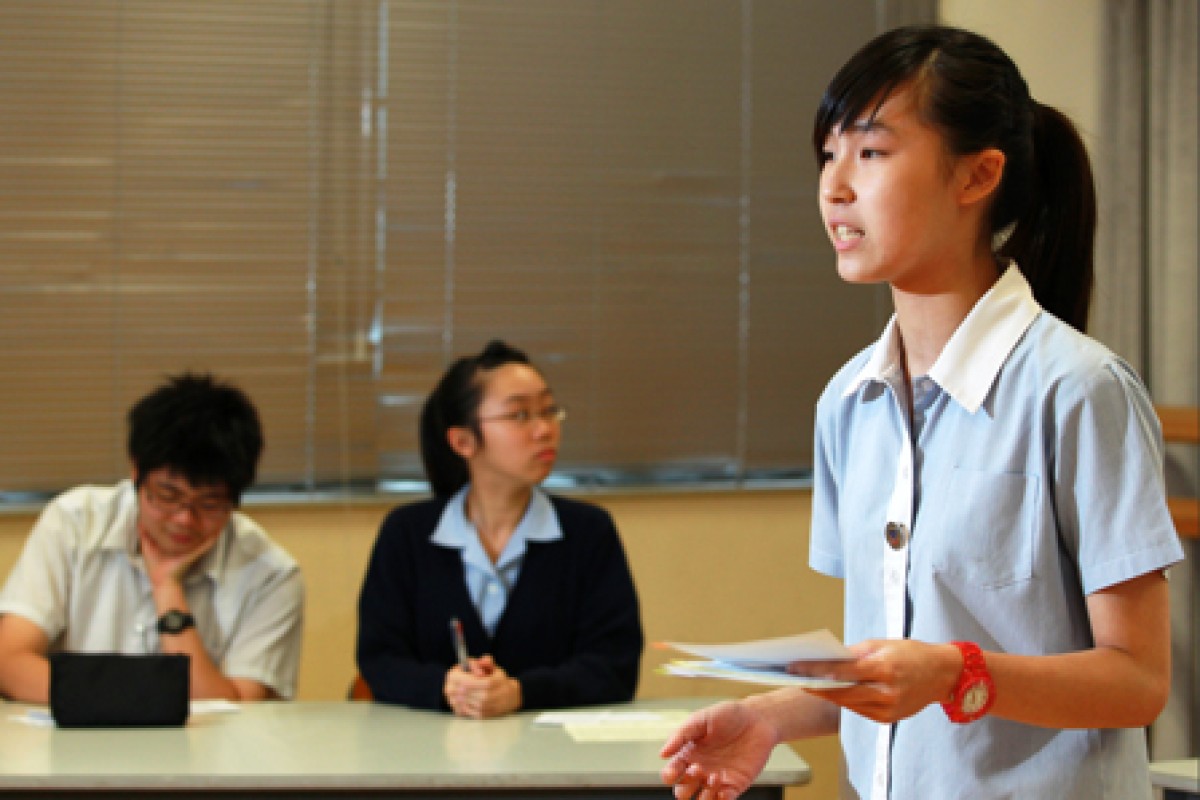
Forceful Hioe Tjo Yoeng speakers sound like rights activists in defeating motion that animal shows are beneficial
 Hioe Tjo Yoeng's third speaker, Gloria Chang, was judged best speaker in the third round of the 12th Nesta-SCMP Debating Competition
Hioe Tjo Yoeng's third speaker, Gloria Chang, was judged best speaker in the third round of the 12th Nesta-SCMP Debating CompetitionBetter presentation and more convincing arguments helped YWCA Hioe Tjo Yoeng College edge out Christian Alliance Cheng Wing Gee College in the third round of the 12th Nesta-SCMP Debating Competition.
The schools debated the motion: "public, performing animal shows are beneficial." Cheng Wing Gee took the affirmative side and Hioe Tjo Yoeng the negative.
The debate took place last Tuesday at Cheng Wing Gee. Nalini Fernandes and Petunia Kinsley, English teachers from HKMA David Li Kwok Po College, adjudicated.
They gave the edge to Hioe Tjo Yoeng's debaters because their delivery was better and they were more convincing.
Fernandes said: "Speakers from the negative side spoke with force. They sounded like animal activists, providing evidence and getting the message across that animal shows are not beneficial."
Form Four student Gloria Chang Wing-yan, the third speaker from the negative side, was named best speaker. Kinsley said: "Gloria has lots of firepower. She rebutted arguments from the affirmative side clearly, point by point. As the last speaker, she also reinforced the points stated by the first two speakers. Great teamwork."
Hioe Tjo Yoeng earned praise for having a clear team strategy and confident presentation. Kinsley said: "All three speakers from the negative side are strong with their use of words, have good voices, gestures and eye contact."
The adjudicators encouraged Cheng Wing Gee's debaters to give more detailed examples to back up their arguments. Kinsley said: "It would be more convincing to state the source of the information. The affirmative side's first speaker did not give a clear team line and could have done a better job defining the motion. When giving definitions of key terms in the motion, it is always more convincing to quote from a dictionary."
The affirmative side built their case by saying that animal shows bring entertainment and economic benefits. They said theme parks like Ocean Park attracted millions of visitors every year with dolphin shows, helping to develop tourism and the economy.
Form Four student Tang Lik-hang, Cheng Wing Gee's second speaker, said: "Animals shows are educational. They raise awareness of animal conservation."
The negative side countered by saying it is unnatural for animals to perform and the shows are a form of animal abuse. Form Four student Chloe Ng Hing-yu, Hioe Tjo Yoeng's second speaker, said: "Animal shows are cruel, inhumane and more about making profit rather than bringing benefits to animals and people."
The contest is organised by the Native English Speaking Teachers' Association and the South China Morning Post.